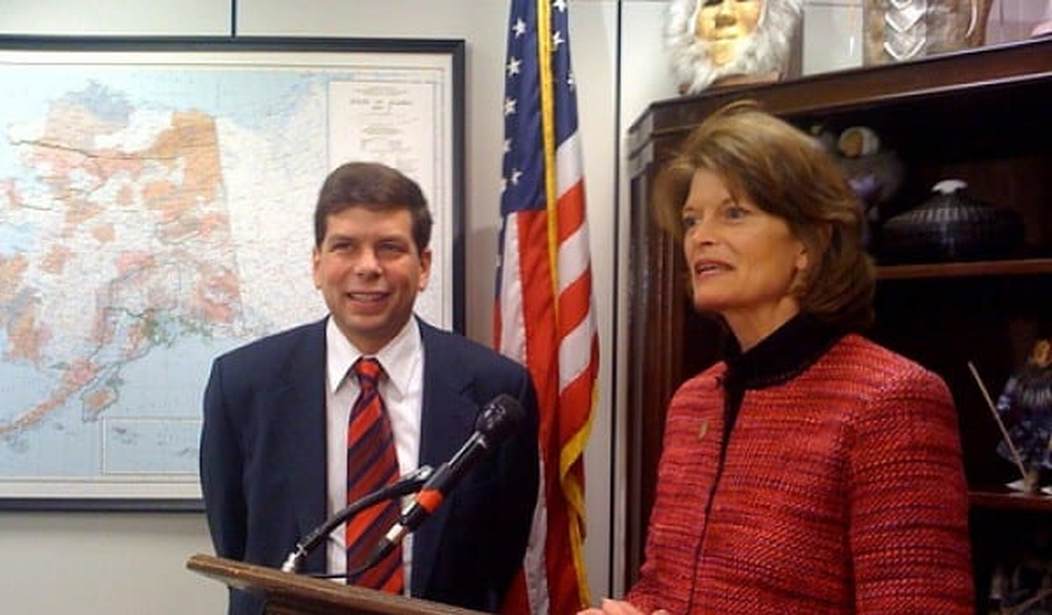Sen. Mark Begich (D-Alaska) went out with a flourish after he called newly elected senator Dan Sullivan (R-Alaska) to admit defeat in their Nov. 4 face-off.
The Associated Press called the election for Sullivan Nov. 11 and the Republican went to Washington for Senate orientation sessions. But Begich refused to concede. His campaign manager said the former mayor of Anchorage would hang on until the last vote was counted.
While the counting of absentee ballots and votes from the most remote areas of the state continued, the Alaska Division of Elections released new vote totals Nov 17. With more than 279,000 votes counted, the numbers showed Begich had whittled Sullivan’s lead from the 7,700-vote margin reported three days before to just over 2,200.
But enough was enough.
No longer sensing even the slightest chance of victory, Begich issued a 500-word statement in which he attacked Outside campaign spending from the lower 48 states and gave the impression voters had not seen his name on a ballot for the last time.
“Over 10,000 Alaskans donated to and volunteered for this campaign because we charted a clear course and positive vision for Alaska instead of following a partisan script crafted by Outside power brokers and billionaires who want to buy power in Washington,” Begich wrote.
But neither campaign was pure as a driven Alaskan snow when it came to accepting outside money, especially “dark” money, which by its definition is hard to track.
Although Begich wrote in his concession message that his campaign had endured more than $10 million in attack ads from “Outside groups,” the Senate Majority PAC did give $8.8 million to Put Alaska First PAC, a single-candidate super PAC that supported Begich.
Sullivan challenged Senate primary candidates to sign a pledge not to take outside money in June. Begich refused and called it a campaign ploy.
But Begich challenged Sullivan to sign a new pledge to refuse outside spending in October that Sullivan declined to sign.
“Neither campaign has been perfect,” Jessie Peterson, director of the Alaska Public Interest Research Group, told the L.A. Times. “They’ve both taken a lot of money.”
And there was plenty of money to go around.
The Brookings Institution study of campaign spending released Nov. 7 showed candidates and outside groups spent just over $1 billion across the nation in the 2014 Senate races.
The Alaska Senate race was the sixth most expensive in the nation at $60.7 million. The North Carolina Senate race was the most expensive at $111 million.
However, Alaska was first in the nation in cost per voter at $120.59. That was more than twice as much as the $50 spent per voter in the New Hampshire Senate race, which was the next most expensive on a per-voter basis.
There is already some talk in Alaska that Begich, if he wasn’t laying the foundation, was at least testing the waters for a 2016 campaign against Sen. Lisa Murkowski (R-Alaska).
In the opening paragraph of his concession message, Begich didn’t set those rumors aside. Instead, Begich gave hope to his legion of supporters that he would be back.
“As a born and raised Alaskan, I will always be involved in my community, and the results of an election have never diminished my desire or passion to achieve these goals,” Begich wrote.
Just as any good candidate with a track record would do, Begich also listed his accomplishments that he said included “saving the F-16’s in Fairbanks, protecting missile defense at Fort Greely, and securing two new squadrons of F-35’s for Eielson Air Force Base,” which “will spur the largest economic investment in Interior Alaska since the construction of TAPS.”
“I consider one of my most significant accomplishments to be the new national model of caring for our veterans, allowing the men and women who served our nation to receive health care at local health clinics and hospitals without traveling to VA facilities,” Begich wrote.
“This accomplishment proves that Alaska is a place of unbelievable possibilities and that we never shy away from a challenge.”
The Begich campaign never tired of pointing out during the general election campaign that the Democrat was born and raised in Anchorage, and Sullivan came from Ohio.
Begich pointed to that again in his concession statement, along with listing his past campaign victories.
“Being born and raised in Anchorage, I’m also proud to have won ten of Anchorage’s sixteen legislative districts, a testament to my past and present service to my community,” Begich wrote.
“My entire family is grateful to every Alaskan who supported my campaign, from stories of my father campaigning in rural Alaska to a donation of a single dollar in Bristol Bay. Everyone who supported my campaign can proudly say we ran a campaign built and powered by Alaskans, not Outside interests,” he said.
That circles back to the voters Begich sees as being his power base for the next campaign, perhaps a run against Murkowski in 2016.
“Rural Alaska made its voice heard loud and clear in the election, and I am overwhelmed by the record levels of support I received from villages and hubs across the state. It has been an honor to travel Alaska to meet with Alaskans in their homes, tribal halls and businesses to hear their needs and concerns.”
Sullivan issued his own statement following the concession call from Begich.
“The responsibility of representing and serving Alaskans comes first. I look forward to doing the job that Alaskans elected me to do, and to begin the process of turning our country around and building a brighter future for Alaska,” Sullivan said.
Begich used his concession message to urge Sullivan to work for bipartisan compromise in the Senate. But will the GOP have to do that?
The Begich loss, coupled with what looks like the defeat of Democrat Mary Landrieu in Louisiana, would give the Republicans a 54-46 seat majority in the Senate.









Join the conversation as a VIP Member